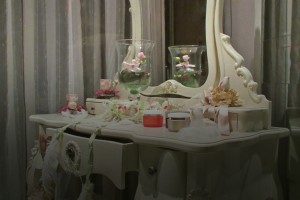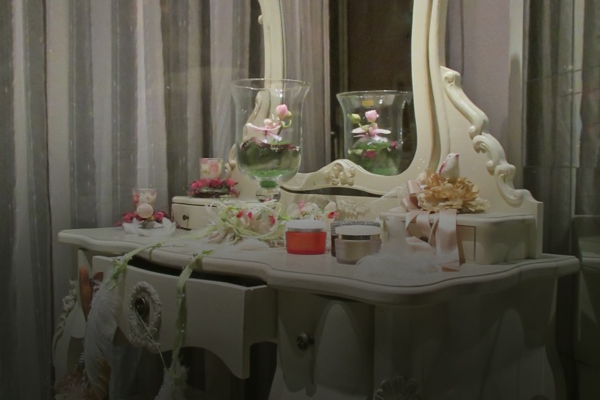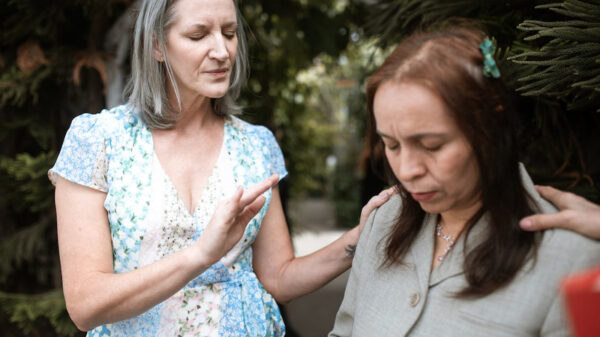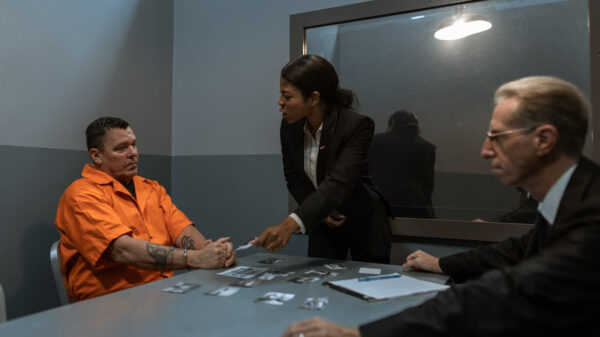
A second sketch is next drawn from a description of the same subject, this time offered by one of the other women in the study. The subjects were asked to get to know one another as they were waiting to be drawn so that each could offer a description of the other. When he is done, the artist shows the two sketches to each subject; one sketch done from the subject’s description of herself, the other from the description offered by a stranger. The first sketches are uniformly less “attractive” than the second. Each of the subjects, as they are viewing the drawings, reflects on how sad or unattractive the self-descriptions are compared to the descriptions offered by strangers. Their observations are interesting:
“I should be more grateful of my natural beauty. It impacts the choices and the friends that we make, the jobs we apply for, how we treat our children. It impacts everything. It couldn’t be more critical to your happiness.”
“We spend a lot of time as women analyzing and trying to fix the things that aren’t quite right and we should spend more time appreciating the things that we do like.”
I couldn’t help but be mesmerized by the commercial and virtually everyone I’ve shown it to feels the same way. From the initial concept, to the videography, to the music, to the pacing and the production quality, this short video is nothing less than powerful. But if we’re not careful, I think we can miss the point altogether. The video ends with a single sentence set against a white background:
You are more beautiful than you think
Who among us, as a parent of a young girl, would not want them to know this statement is true? I have two daughters. I want them to be “grateful of their natural beauty”. I do believe this “impacts the choices and the friends that they make, the jobs they apply for, and how they will treat their children.” But I reject the cultural notion that “natural beauty” is a matter of physical appearance, and you ought to reject this too. Even if my daughters learn to “appreciate the things they do like” about themselves, we all know there will always be someone who is more physically attractive than we are. If our self-value is dependent on what we believe about our appearance, we are destined to run into people we will consider more valuable (based on their “greater” beauty). If we embrace physical beauty as a measure of value, our aging mortality will eventually destroy our self-image. As an old guy, I’ve come to experience this first-hand.
Yes, “you are more beautiful than you think,” but it’s not because some stranger thinks so. It’s not even based on your physical appearance in the first place. You and I are more beautiful than we think because we are the children of God, created in his image. Each of us is valuable and beautiful to God who “sees not as man sees, for man looks at the outward appearance, but the Lord looks at the heart” (1 Samuel 16:7). Here’s the good news: your beauty is rooted in the nature of the God who created you in His image. Share on X
So in the end, the Dove commercial does not bring a message of hope, but a message of despair. The most it can offer is, “Don’t worry; you’re not quite as ugly as you think you are!” But in the end, your value is still attached to your appearance; in this case your appearance as judged by strangers. Wouldn’t it be great if your beauty and value were not simply a matter of opinion (yours or anyone else’s)? Wouldn’t it be amazing if beauty was grounded not in the fleeting, subjective opinions of malleable culture but in the objective, transcendent, immutable nature of God? Well here’s the good news: your beauty is rooted in the nature of the God who created you in His image. You might think you are ugly, and others might even think you are ugly. But your beauty is not determined by your appearance. It never was. God does not make junk, and you are in his image. You matter. You are beautiful. Think about that for a moment, because it “impacts everything” and “couldn’t be more critical to your happiness.”

J. Warner Wallace is a Dateline featured Cold-Case Detective, Senior Fellow at the Colson Center for Christian Worldview, Adj. Professor of Christian Apologetics at Talbot School of Theology, Biola University, author of Cold-Case Christianity, God’s Crime Scene, and Forensic Faith, and creator of the Case Makers Academy for kids.
Subscribe to J. Warner’s Daily Email
J. Warner Wallace is a Dateline featured cold-case homicide detective, popular national speaker and best-selling author. He continues to consult on cold-case investigations while serving as a Senior Fellow at the Colson Center for Christian Worldview. He is also an Adj. Professor of Christian Apologetics at Talbot School of Theology, Biola University, and a faculty member at Summit Ministries. He holds a BA in Design (from CSULB), an MA in Architecture (from UCLA), and an MA in Theological Studies (from Gateway Seminary).







































Pingback: Is Real Beauty a Matter of Opinion? | Cold Case Christianity – Reformed faith salsa style